- Home Page
- Company Profile
-
Our Products
- Fire Suppression Systems
- Hfc 227ea Auto Fire Extinguishing System
- Hfc227ea Total Flooding System
- Clean Agent Cylinderless System for Car
- Wind Turbine Fire Detection and Suppression System
- Vehicle Fire Protection System
- Fire Extinguishing System For Electrical Cabinets
- Aerosol Based Fire Suppression System
- Cylinder Less Tube Based Fire Detection Suppression Systems
- Hfc227ea Clean Agent Fire Extinguishers
- Carbon Steel Fm 200 Fire Suppression System
- Direct Tube Based Fire Suppression System
- Novac 1230 Fire Flooding Systems
- Clean Agent Fire Suppression System
- Heat Sensing Tube
- Clean Agent Cylinderless System
- Modular Clean Agent HFC236fa Extinguishers
- FK 5112 Suppression System
- Hfc 227ea Based Fire Suppression System
- Novec 1230 Flooding System
- Aerosol Fire Suppression System
- Dual Agent Retardant fire Suppression System
- Fire Suppression For Power Generators
- Car Fire Protection System
- Novec 1230 Clean Agent Suppression Systems
- High Voltage Transformer Fire Suppression System
- FM200 Fire Suppression System
- Mild Steel Novec 1230 Fire Suppression System
- Bus Engine Fire Protection System
- Fire Trace System
- Clean Agent Fire Suppression System for Wind Turbine
- Novec 1230 Fire Suppression System
- Heavy Vehicle Fire Suppression Systems
- Fire Detection And Fire Suppression System
- SEVO Tubing Suppression System
- Vehicle Fire Suppression System
- Fire Sprinkler System Installation Service
- Pre Engineered Fire Suppression System
- Server Rack Fire Suppression System
- Fire Suppression System (Capacitor Panel)
- Mild Steel Fire Suppression Systems
- Electrical Panel Detection Suppression System
- Fire Detection Tube Suppression System
- Fire Extinguishing System For Electrical Panel
- Electrical Panel Gas Suppression System
- Novec 1230 Fire Suppression System for Industrial
- Fm200 Gas Based Fire Suppression Systems
- FM200 Gas Based Fire Suppression Systems For Wind Turbines
- Novec 1230 Fire Gas Suppression System For Electrical Panel
- Tube Based Fire Suppression System
- Novec 1230 Fire Extinguishing System
- Novec 1230 Gas Suppression System For Wind Turbine Fire Suppression System
- Nitrogen Injection Transformer Fire Protection System
- Electrical Panel Fire Suppression System
- Dual Agent Retardant Fire Suppression System
- Diffusible FE36 Fire Suppression System
- Hazardous Cabinets Fire Suppression System
- Chemical Fire Suppression Systems
- Nitrogen NITFP System
- Automatic Fire Detection and Suppression System
- Novec 1230 Fire Suppression Systems
- Fire Suppression For Wind Turbines
- Bladder Tank Proportioning System
- Electrical Panel Fire Suppression
- Fk 5112 Fire Suppression System
- Fire Extinguishing Systems
- Fire Alarms And Detection Systems
- White Addressable Duct Detector
- UV IR Flame Detector
- Agni Sounder Hooter
- Addressable Fire Alarm System
- Fire Alarm System Amc Service
- Conventional Fire Alarm System
- Digital Addressable Fire Alarm System
- Aspirating Systems Smoke Detectors
- Agni Addressable Security Fire Alarm
- Fire Detection And Fire Alarm System
- Uv Ir Flame Detector System
- Ravel 2 zone Conventional Fire Alarm System
- Addressable Photoelectric Duct Detector
- Fire Alarm Sounder
- Fire Response Indicator
- Vesda Aspirating Smoke Detection System
- 4 Zone Addressable Fire Alarm System
- Ravel 4 zone Conventional Fire Alarm System
- Fire Detection Fire Alarm System
- Co2 Flooding/Suppression System
- Co2 Based Fire Suppression Systems
- CO2 Suppression System
- CO2 Fire Flooding
- Automatic Pipeline Co2 Fire Suppression System
- Co2 Fire Flooding System
- Co2 Cylinder Fire Suppression System
- In Direct CO2 Flooding System
- High Pressure Co2 Automatic Fire Extinguishing System
- Automatic Co2 Flooding System
- Automatic CO2 Flooding System
- Gas Based Co2 Flooding System
- Co2 Gas Fire Suppression System
- ELECTRICAL PANEL CO2 FLOODING SYSTEM
- Automatic Pipeline CO2 Fire Suppression System
- Co2 Fire Suppression System
- Passive Fire Protection
- Fire Extinguishers
- Twin Trolley Type Fire Extinguisher
- Co2 Fire Extinguisher Refilling Service
- Clean Agent Type Fire Extinguisher
- Amc For Fire Fighting System
- Co2 type fire Extinguisher
- Mild Steel Wet Chemical Fire Extinguisher
- Carbon Steel Abc Fire Extinguisher
- Automatic Ceiling Mounted D Type Fire Extinguisher
- Water Spray Sprinkler Systems
- Kanex Fire Extinguishers
- Fe36 Clean Agent Fire Extinguisher
- Modular Dry Chemical Powder Extinguishers
- Kitchen Fire Suppression System
- Kitchen Fire Suppression System
- Mild Steel Kitchen Fire Suppression
- Kitchen Hood Fire Suppression System
- Automatic Kitchen Fire Extinguishing System
- Kitchen Fire Extinguisher
- kitchen Nozzle Fire Suppression System
- Restaurant Kitchen Fire Suppression System
- Fire Suppression System For Commercial Kitchen
- Commercial Kitchen Fire Suppression System
- HW & MV Fire Protection System
- Commercial Gas Leak Detector
- Medium Velocity Water Spray System (MVWS)
- Transformer Fire Protection System
- Transformer Fire Prevention System
- Transformer Fire Suppression Systems
- Conveyor belt system fire protection system
- Nitrogen Injection Fire Protection System For Transformer
- High Velocity Water Spray System (HVWS)
- Fire Suppression Accessories
- Fire Hydrant System
- Clean Agent Gas Refilling
- Fire Fighting Foams
- Smoke Detector
- Ravel Beam Smoke Detector
- Addressable Photoelectric Smoke Detector
- Addressable Smoke Detector
- Fire Alarm Addressable Smoke Detector
- Battery Addressable Smoke Detector
- Polycarbonate Smoke Detector
- Agni Smoke Detector
- Conventional Optical Smoke Detectors
- Addressable Duct Smoke Detector
- Agni Wireless Smoke Detector
- White Polycarbonate Smoke Detector
- Manual Call Point
- Fire Retardant Fabric
- Fire Alarm Control Panel
- Heat Detector
- Beam Detectors
- Fire Door
- HW&MV Fire Protection
- Fire Cable Coating
- Fire Cable
- Public Address Systems
- Hydraulic Hose
- Fire Suppression Systems
- Contact Us
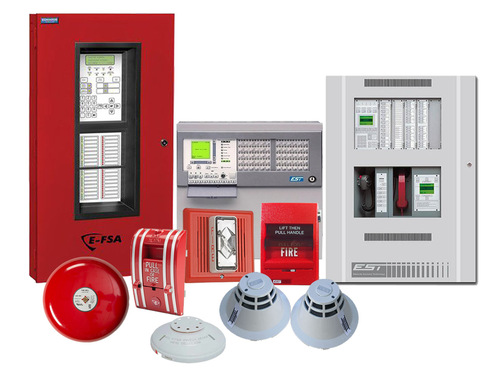
Agni Fire Alarm Control Panel
6500 INR/Piece
Product Details:
- Usage fire
- Product Type FIRE
- Color multiple
- Frequency 1 k.m Hertz (HZ)
- Application INDUSTRIAL
- Click to view more
X
Agni Fire Alarm Control Panel Price And Quantity
- 5 Piece
- 6500 INR/Piece
Agni Fire Alarm Control Panel Product Specifications
- fire
- FIRE
- multiple
- INDUSTRIAL
- 1 k.m Hertz (HZ)
Agni Fire Alarm Control Panel Trade Information
- Cheque
- Asia
- All India
Product Description
A Fire Alarm Control Panel (FACP), also known as a Fire Alarm Control Unit (FACU), is a critical component of a fire alarm system. It is a centralized unit that monitors and controls various devices within a building or facility to detect and respond to fires and other emergency situations.
Here are some key aspects of a Fire Alarm Control Panel:
1. Detection and Notification: The primary function of the FACP is to detect the presence of a fire or other emergencies through various input devices, such as smoke detectors, heat detectors, manual pull stations, and water flow switches. When a potential threat is detected, the FACP activates alarms, which can include horns, strobe lights, and sometimes voice evacuation systems.
2. Zone Control: Modern FACP systems are divided into zones. Each zone typically represents a specific area or section of a building. If a sensor within a particular zone triggers an alarm, the FACP can identify the affected zone, helping emergency responders pinpoint the location of the emergency.
3. Monitoring: The FACP continuously monitors the status of all connected devices. It checks for faults, such as device malfunctions or wiring issues, and reports these problems to the central monitoring station or building management system.
4. User Interface: Fire Alarm Control Panels have user interfaces that allow authorized personnel to interact with the system. This interface may include an alphanumeric keypad or a touchscreen display. Users can acknowledge alarms, silence alarms temporarily, and perform other functions through this interface.
5. Relays and Outputs: FACP systems often have output relays that can be used to control various building functions in response to a fire or other emergency. For example, they can release electromagnetic door locks, shut down HVAC systems to prevent smoke spread, and activate fire suppression systems like sprinklers.
6. Battery Backup: To ensure continuous operation in case of a power outage, fire alarm control panels are typically equipped with battery backup systems that provide power to the panel and connected devices.
7. Communication: Some modern FACP systems are capable of communicating with remote monitoring services or emergency responders through phone lines, internet connections, or cellular networks. This allows for a quicker response to emergencies.
8. Programming and Configuration: The FACP can be programmed and configured to meet the specific needs and requirements of a building. This includes setting alarm thresholds, establishing response protocols, and conducting regular testing and maintenance.
9. Compliance: Fire Alarm Control Panels and the entire fire alarm system are subject to local building codes and regulations. They must be installed, maintained, and tested in compliance with these codes to ensure the safety of occupants.
FAQ:
Q. What is a Fire Alarm Control Panel (FACP)?
Ans: A Fire Alarm Control Panel is a central component of a fire alarm system. It monitors and controls various devices such as smoke detectors, heat detectors, and alarms to detect and respond to fires and other emergencies.
Q. Why is an FACP important?
Ans: An FACP is crucial for the early detection of fires, which can save lives and prevent property damage. It provides a central point of control and monitoring for the entire fire alarm system.
Q. What devices are typically connected to an FACP?
Ans: Devices connected to an FACP include smoke detectors, heat detectors, manual pull stations, sprinkler systems, fire alarms, strobe lights, and more.
Q. How does an FACP detect fires?
Ans: It detects fires through sensors like smoke detectors and heat detectors that respond to changes in air quality or temperature, signaling an alarm when predefined thresholds are exceeded.
Q. What is the purpose of zoning in an FACP?
Ans: Zoning allows the FACP to identify the specific location of an alarm or fault within a building, helping emergency responders respond quickly to the affected area.
Q. Can an FACP be integrated with other building systems?
Ans: Yes, many modern FACP systems can be integrated with building management systems, security systems, and access control systems to enhance overall safety and security.
Q. What should I do if the FACP activates an alarm?
Ans: If the FACP activates an alarm, follow your building's evacuation procedures immediately. Do not ignore the alarm, and always treat it as a potential emergency.
Q. How often should fire alarm systems be tested and inspected?
Ans: Fire alarm systems should be regularly tested and inspected as per local building codes and regulations. This typically includes monthly and annual testing, along with routine maintenance.
Q. Are there regulations governing the installation and maintenance of FACPs?
Ans: Yes, regulations and building codes vary by location, but most jurisdictions have strict requirements for the installation, testing, and maintenance of fire alarm systems, including FACPs.
Q. Do FACPs have battery backup systems?
Ans: Yes, FACPs typically have battery backup systems to ensure they continue to function in the event of a power outage.
Q. Can FACPs communicate with emergency services?
Ans: Some FACPs can communicate with remote monitoring services or emergency responders through phone lines, internet connections, or cellular networks to expedite emergency response.
Q. Can FACPs be remotely monitored?
Ans: Yes, many modern FACPs support remote monitoring, allowing building management or monitoring services to receive real-time information about the status of the fire alarm system.
Q. Can FACPs be customized for specific building needs?
Ans: Yes, FACPs can be programmed and configured to meet the specific requirements and needs of a building, including alarm thresholds, notification protocols, and system integration.
Tell us about your requirement

Price:
Quantity
Select Unit
- 50
- 100
- 200
- 250
- 500
- 1000+
Additional detail
Mobile number
Email
Other Products in 'Fire Alarm Control Panel' category
" We mainly want inquiries from Gujarat, Rajasthan, Madhya Pradesh, Maharashtra, Goa. "


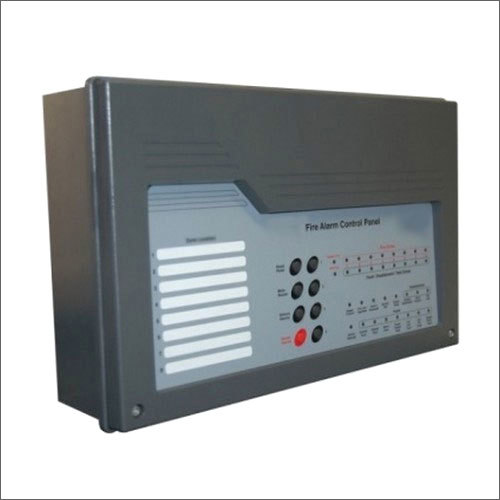
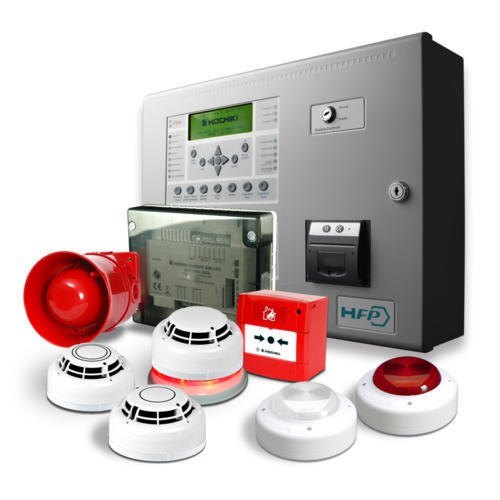
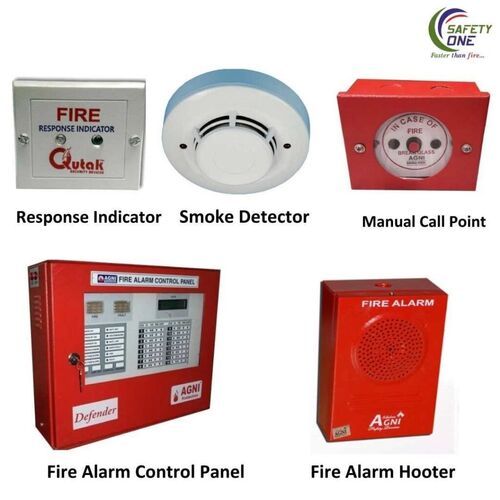
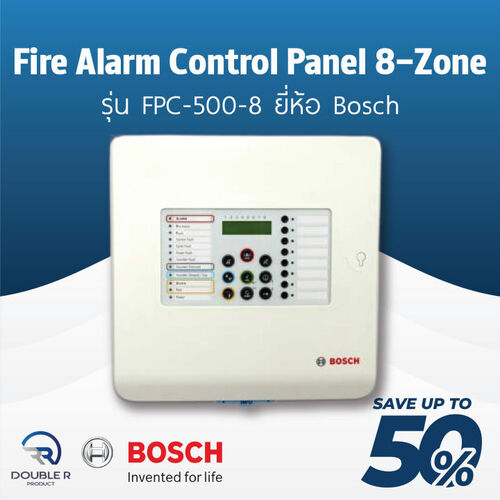

 English
English Spanish
Spanish French
French German
German Italian
Italian Chinese (Simplified)
Chinese (Simplified) Japanese
Japanese Korean
Korean Arabic
Arabic Portuguese
Portuguese